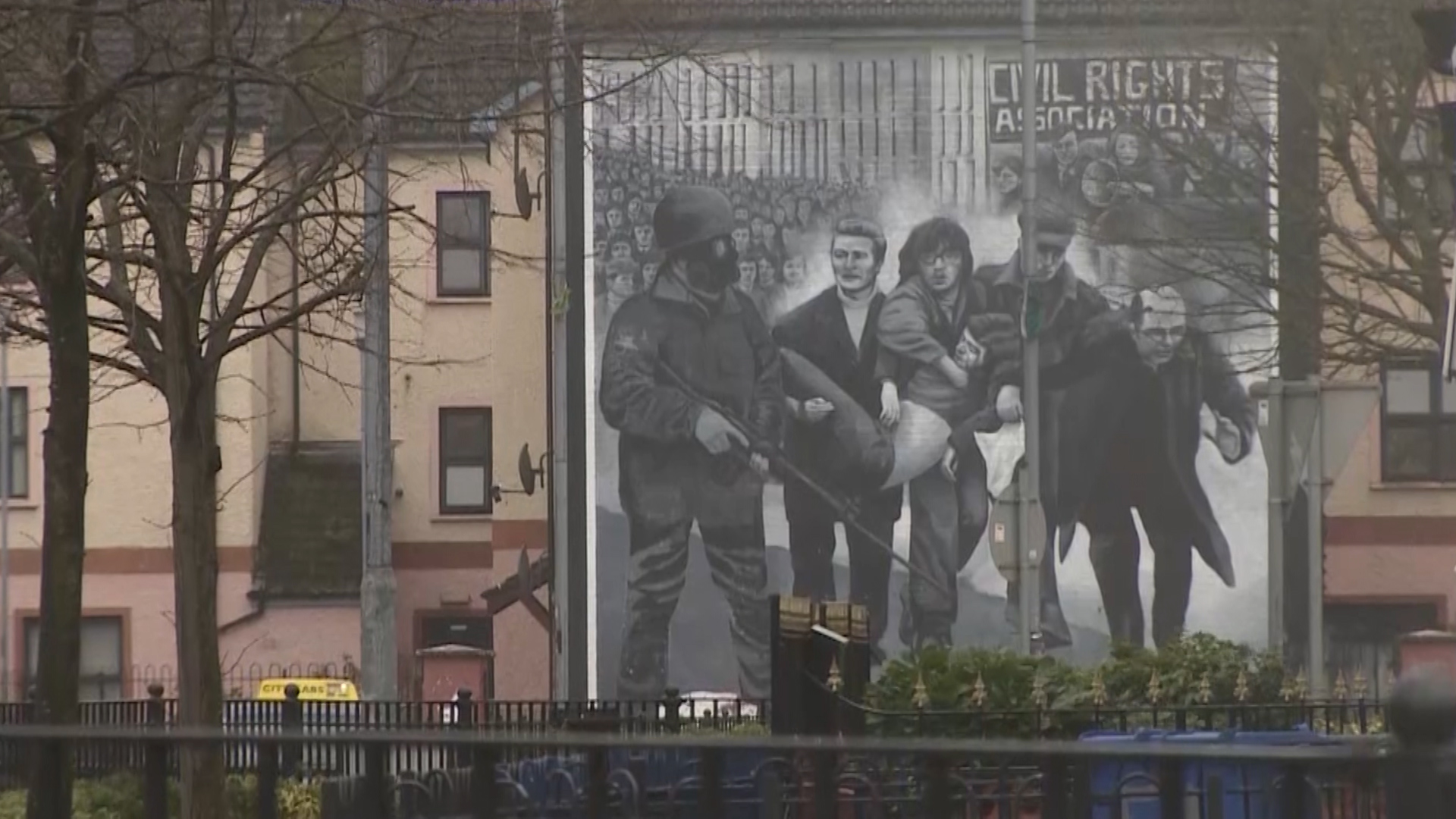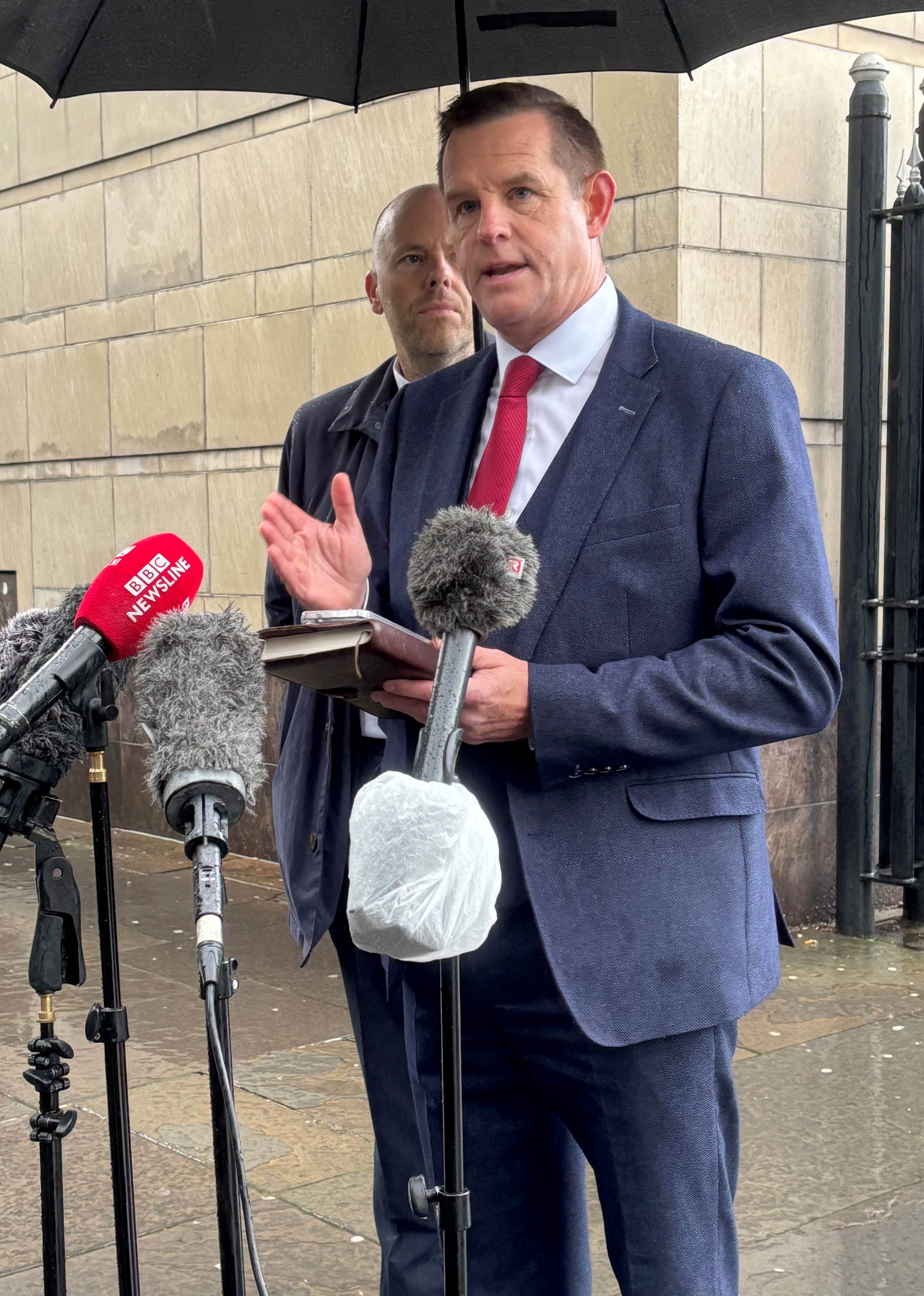
Live: Trial of former soldier accused of Bloody Sunday killings begins in Belfast

The trial of a former paratrooper accused of murdering two men on Bloody Sunday has begun at Belfast Crown Court.
Soldier F, who cannot be identified due to a court order, stands accused of the murders of James Wray and William McKinney.
Members of the Parachute Regiment shot dead 13 civil rights protesters in Londonderry on 30 January 1972.
He is also charged with the attempted murders of five other people - and has pleaded not guilty to all charges.
:: This article will be periodically updated with key moments from the trial.
Families of victims and NI Veterans Commissioner speak outside court

A short rally took place outside Belfast Crown Court prior to the commencement of the trial.
John McKinney, the brother of William McKinney, described the day as “momentous,” adding: “It has taken 53 years to get to this point, and we have battled all the odds to get here.”
Northern Ireland Veterans Commissioner David Johnstone said many veterans felt "frustrated, angry and betrayed" by the legacy process taking place.
"The vast majority… of nearly 300,000 Armed Forces that served here in Northern Ireland during Op Banner did so with dignity, with restraint and with professionalism," he said.
"As Veterans Commissioner, I will continue to advocate for a legacy process that ensures fairness for all, upholds the principles of justice and recognises the service and the sacrifice of those who stood in defence of all sections of this community during one of the darkest chapters in our history."
Prosecution sets out case
Setting out the case for the prosecution, Louis Mably KC said the trial would have a "specific and narrow focus" on shootings by a group of soldiers from the Parachute Regiment which took place in a courtyard in Londonderry's Bogside area on Bloody Sunday.
"The shooting was unnecessary and it was gratuitous and it was carried out, given the weapon involved, with an intent to kill and, in any event, at the least with an intent to cause really serious harm," Mr Mably added.
Soldier F is present in the courtroom, but is cloaked by a long curtain to preserve his anonymity.
Admissibility of 'decisive evidence' is examined
The prosecution is seeking to use statements made by Soldier G and H which it argues is "decisive evidence".
They include statements made by the Royal Military Police (RMP) on the night of the shootings, as well as statements to the Widgery Inquiry later in 1972, and a transcript of oral evidence they gave to that inquiry.
The RMP statements were ordered under compulsion, with no legal advice being given to the soldiers.
The Widgery Inquiry was "similarly compelled", said Prosecution Barrister Louis Mably KC.
Mr Mably described the statements as "truthful in some respects, but untruthful in others", with some of the contents consistent with other eye-witness evidence.
"Truthful in identifying which [soldier] opened fire… they had no good reason to lie about that," he said.
"Statements of G and H taken together is obviously decisive evidence, the question of whether or not F opened fire."
While Soldier G is understood to have died, Soldier H remains alive.
Soldier H's solicitors have told prosecutors that if they are forced to give evidence at trial, they will exercise their privilege against self-incrimination.
The defence is set to respond on Thursday.
'Complete cloud of uncertainty' surrounding 'decisive evidence' delivered yesterday
Soldier F's defence barrister Mark Mulholland KC said there was a "complete cloud of uncertainty" around the process of how the statements to the RMP were taken.
Questioning whether G and H had colluded, he said the RMP statements were a "series of unreliable, fundamentally flawed, inconsistent allegations" from 50 years ago. He claimed they may have been "seeking to justify" their own use of force.
In the statements and oral evidence given to the Widgery Tribunal, Mr Mulholland said witnesses had been questioned, not cross-examined on that evidence, pointing out that it was an inquisitorial, not an adversarial process.
Judge Patrick Lynch indicated that he planned to deliver his ruling on the hearsay applications next Wednesday.









